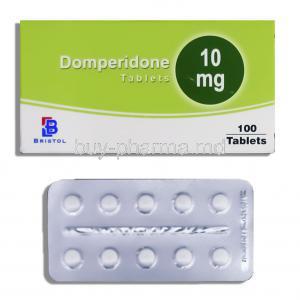Pantoprazole
Uses
How it Works
Common Side effects
Patients who take Pantpas may suffer from such side effects;
Diarrhea,
Vomiting,
Abdominal pain,
Vonstipation,
Headaches,
Skin rashes
Uses
Pantoprazole is a proton pump inhibitor (PPI). It helps reduce stomach acid production while inhibiting certain bacteria that could cause digestive issues. Pantoprazole has been prescribed to treat gastroesophageal reflux disease (GERD), erosive esophagitis, peptic ulcer disease, and stress ulcers.
Pantoprazole can be taken orally, through an IV infusion into a vein (injection), and through a nasogastric tube. If using an injection, be sure to read all instructions carefully and ask your doctor or pharmacist if there are any special precautions you should take.
Pantoprazole should always be taken as prescribed, at the lowest dose that works for you and for no longer than prescribed by your doctor. Furthermore, avoid exceeding the dose prescribed and drinking excessive amounts of alcohol while on it.
How it Works
Pantoprazole is a proton pump inhibitor (PPI) prescribed to treat various medical conditions that involve stomach acid. These include heartburn, gastroesophageal reflux disease (GERD), Zollinger-Ellison syndrome and stomach ulcers.
Pantoprazole works by inhibiting gastric acid production by binding to (H+, K+)-ATPase enzyme systems on the secretory surface of gastric parietal cells. This action inhibits both basal and stimulated acid production.
Pantoprazole's antisecretory effect lasts more than 24 hours, even after multiple doses. This occurs due to covalent binding between the drug and ATPase enzymes at the gastric parietal cell secretory surface.
Pantoprazole's antisecretory activity begins quickly, with maximal effect occurring between 2-6 hours after administration. However, its efficacy may differ depending on age and other health conditions.
Adults and children over 16 years of age: For treating heartburn and other symptoms caused by stomach acid backing up into the esophagus, take 40 mg twice daily orally. Furthermore, for treating gastroesophageal reflux disease in adults and children over 5 years of age, PROTONIX For Delayed-Release Tablets are recommended; these should be taken 30 minutes before eating a meal.
Children aged 1 to 5: For treating endoscopically proven GERD in this age group, PROTONIX Granules should be administered before a high-fat meal as the median time to peak plasma concentrations was delayed by 2 hours and their AUC was 37% higher than adults receiving one single 40 mg tablet.
Pantoprazole is an effective and selective inhibitor of (H+, K+)-ATPase at the secretory surface of gastric cells. This prevents gastric acid production for up to 24 hours, avoiding stomach acids or ulcers in susceptible individuals.
Introduction
Pantpas is a medication prescribed to treat stomach acid-related disorders.
PPIs (proton pump inhibitors) are a class of drugs designed to reduce stomach acid production.
Pantoprazole is prescribed to treat gastroesophageal reflux disease (GERD) in adults and children 5 years or older, helping heal esophageal damage caused by stomach acids.
Dosage and administration
To get the most out of Pantpas, it's important to follow your doctor's instructions closely. Don't skip a dose, double up on doses or take more than prescribed.
Take your tablet by mouth as directed or with food (the latter is recommended). For optimal effectiveness, place one delayed-release tablet into a glass of milk, juice or water at least 30 minutes prior to eating your meal; this will guarantee you get both the correct dose and all other benefits associated with Pantoprazole.
Granule versions of this drug can also be taken orally. To take them, empty the granules from their packaging into a small cup or teaspoon and sprinkle with 1 teaspoon apple juice. Stir for 5 seconds before swallowing.
Pantoprazole must be taken orally in order to receive its full effect. If necessary, pantoprazole can also be taken in capsule form; however, this option requires much more difficulty swallowing and should only be used once daily for controlling symptoms and being easier on the stomach than tablets.
It is essential not to drink alcohol or take other medications that could potentially disrupt Pantoprazole's effectiveness. You may want to discuss taking a multivitamin with your GP or pharmacist as an additional precaution, though be mindful not to take too many supplements at once as this could cause an overdose.
Warning
Pantoprazole should not be administered to children younger than 12 years old or those pregnant or breastfeeding. Furthermore, it is not advised for individuals with high potassium levels in their blood. Furthermore, this drug is also not suitable for people suffering from heart failure. If you experience any of the following symptoms: weakness, lethargy, difficulty breathing, chest pain or sudden shortness of breath - call your doctor immediately!
Important Precautions
Pantoprazole is a proton pump inhibitor (PPI) that inhibits stomach acid production. It's widely prescribed to treat conditions like gastroesophageal reflux disease (GERD), ulcers, and Zollinger-Ellison syndrome.
Always follow your doctor's instructions for taking this medication. Failure to do so could result in serious side effects.
Maintain a list of all medications, supplements and herbs you are taking so your doctor can alert you if there is an interaction between pantoprazole and another substance and how best to avoid it.
If you take this medication for three months or more, your doctor may suggest monitoring the levels of magnesium in your blood. Doing so can help protect against developing problems with bones and muscles.
Before beginning this medication, be sure to inform your doctor if you have liver disease or take medications called NSAIDs on a long-term basis. Your healthcare provider can perform more frequent monitoring of your liver enzymes and may discontinue the drug if there are serious problems detected.
If you are pregnant or breastfeeding, speak to your doctor before taking this drug as it can pass through breast milk and be harmful for a newborn baby.
Some individuals may experience low levels of vitamin B12 when taking this medication. If you are at risk for this issue, your doctor may suggest taking vitamin B12 supplements along with this medication.
Avoid drinking alcohol while taking this medication, as it may increase the risk of stomach bleeding and other serious side effects. Additionally, drink plenty of water while on this medication to keep your stomach hydrated.
When flying, be sure to bring your prescription-labeled container with you. Airport X-ray machines may require that the medication be shown, so having it on hand is essential.
Side effects
Pantoprazole is a proton pump inhibitor (PPI) drug prescribed to treat various conditions. It reduces stomach acid production and can be used as treatment for heartburn, gastroesophageal reflux disease (GERD), Zollinger-Ellison syndrome, and stomach ulcers.
Pantoprazole also helps remove Helicobacter pylori from the stomach, which has been linked to gastritis and stomach ulcers. Additionally, this bacterium may cause irritable bowel syndrome; pantoprazole is one of the medications often prescribed to address this condition.
Pantoprazole can be taken orally and adheres to the lining of your stomach, blocking acid production. The drug remains active in your system up to 24 hours and prevents new acids from forming.
Pantpas suspension, also known as Pantpas suspension, can be taken orally or through a nasogastric tube (NG) into your stomach. Even if you feel well, you must continue taking this drug and adhere to any instructions for use provided by your doctor.
To avoid bending the NG tubing, make sure your syringe is attached as high as possible when dispensing the granules through it. After emptying out all of the contents into a small cup or teaspoon with one teaspoon of apple juice, be sure to swallow within 10 minutes.
Pantoprazole can have serious side effects if taken for an extended period. For instance, you may develop vitamin B-12 deficiency which could be life-threatening; additionally, it affects your liver and kidneys. If any of these serious reactions occur, contact your doctor right away.
Pantoprazole may cause mild to severe side effects, such as headache, indigestion and nausea. These reactions are usually transient in nature so it's important to take the medication at the same time each day as prescribed by your doctor
Pantoprazole may cause diarrhea, nausea and indigestion as its most common side effects. Other common adverse reactions include headache, irritability and weight loss. If you experience any of these effects it's time to contact your doctor right away.

















